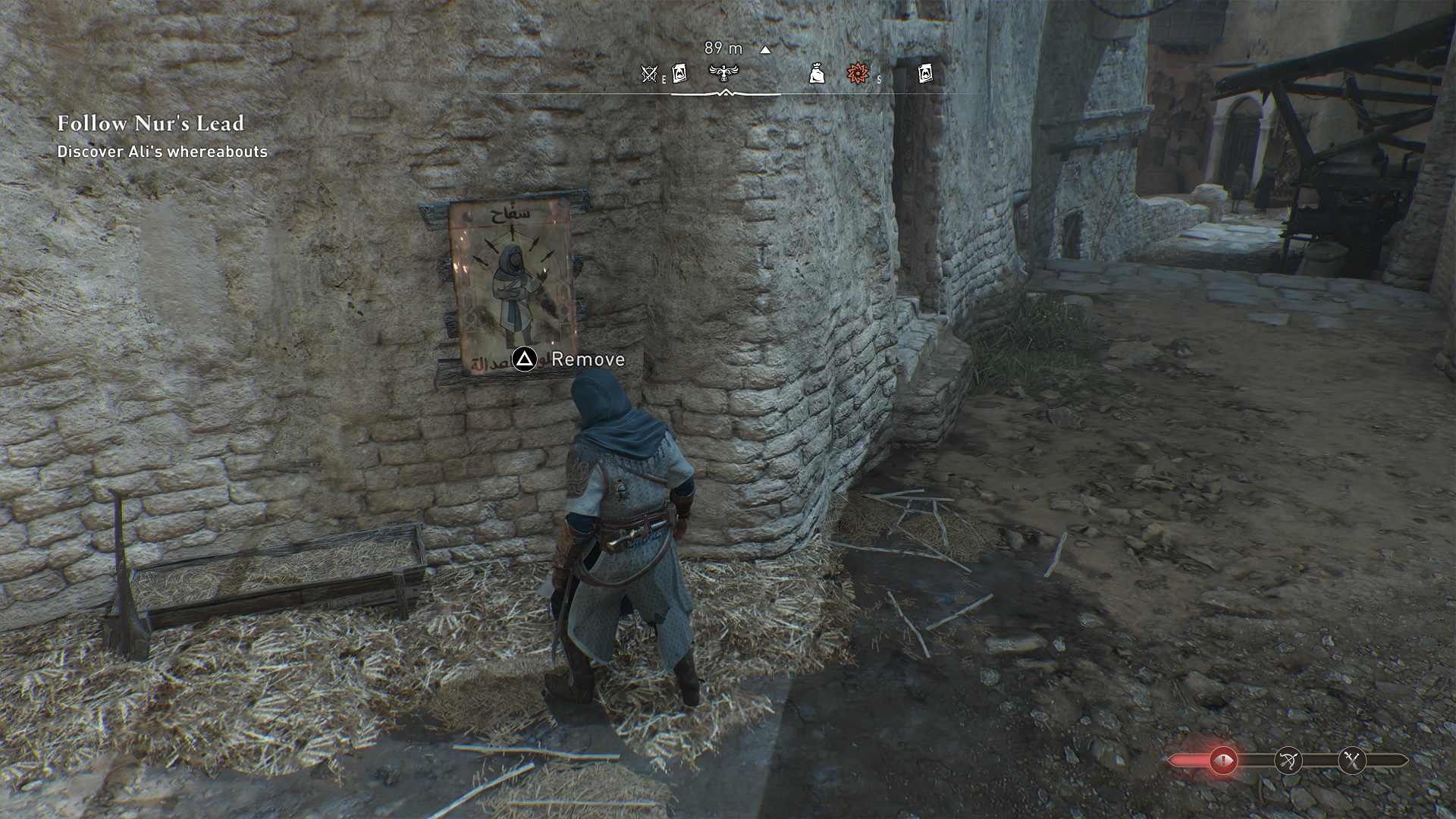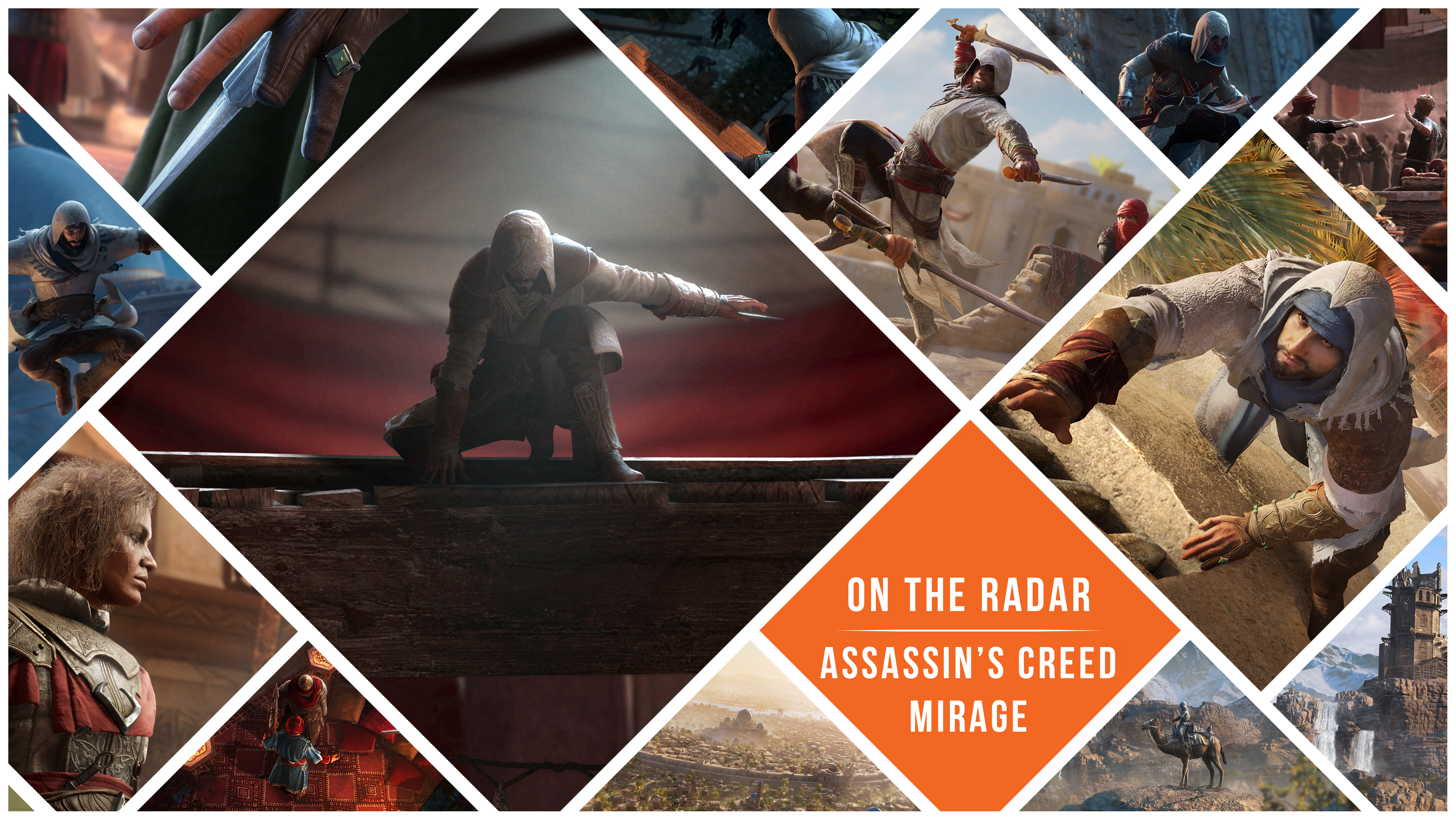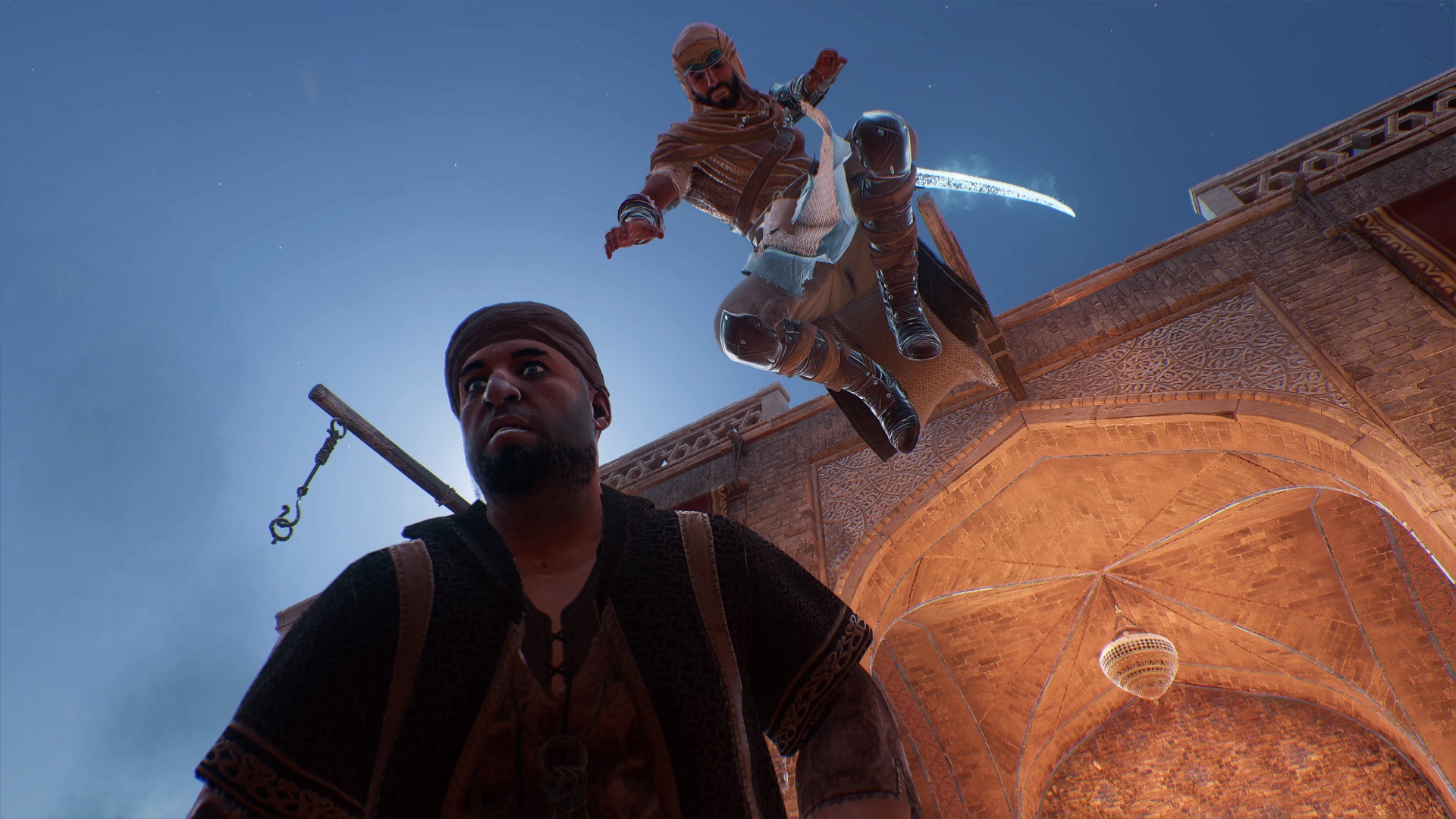Assassin's Creed Mirage improves a 14-year-old stealth feature I didn't realize I'd been missing
Opinion | Assassin's Creed Mirage's notoriety system is a throwback I'm glad to see return

In Assassin's Creed Mirage, I find myself perched on the top of a wall preparing to bury my hidden blade into an unsuspecting guard who stands below. I'm currently in the middle of my first contract in Baghdad, which has diverted me away from the main story to take out a nasty captain who's holding a rebel spy captive. Unfortunately for me, there's a marksman somewhere in the complex that houses my quarry, so I can't get eyes above with my trusty eagle just yet. As I sneak my way through shrubbery and climb up onto a wall, I first lock eyes on the aforementioned guard.
A touch too hastily, I decide to air assassinate them out of the equation, but just as my blade impales the poor fellow, I realize I've royally messed up. A civilian I didn't initially see happens to be standing in the corner and they've just witnessed my murderous act. Oh, heck. Before I know it, they run off screaming for help, as they understandably would, and a red gauge appears on my screen. This is not how it was supposed to go, and I immediately want to start over to prove I can live up to the Creed and be a proper stealthy assassin.
It was then that I came to a realization: this is what I've really been missing. Not only does Assassin's Creed Mirage return to the roots of the series with its focus on parkour and stealth, but it does so with a classic 14-year-old system I'm so happy to see return: Notoriety. While the beginnings of the system began to take shape in the original Assassin's Creed game, it really took off as a fully fledged feature in Assassin's Creed 2. Notoriety has continued to pop up in the series over the years in different variations. But Mirage has brought it back in style, both nodding to the classic system and improving on it in a way that makes the world feel more reactive and immersive than ever.
Laying low

My time with Assassin's Creed Mirage so far has felt a bit like a trip down memory lane. While I'm only a handful of hours into Basim's adventure, it wasn't long before it had me reflecting on the series as a whole, and just why certain features like Notoriety make me feel like a bonafide assassin. I had admittedly forgotten about how much this feature factored into Assassin's Creed 2, but as soon as I saw a tutorial notification pop up about Notoriety in Mirage, a big smile spread across my face. So many memories came flooding back and I was immediately excited to rediscover this feature all over again in a new way.

On the Radar: Assassin's Creed Mirage - A deep dive into the series' return to its roots with Ubisoft Bordeaux
I always appreciated the way the original Notoriety system in Assassin's Creed 2 put my stealthy skills to the test, and made me more mindful of my approach in any given situation. After all, you can't just go stabbing anyone in plain view and expect bystanders to be unbothered by your antics. In a way, it helps reinforce what it means to be an assassin: you should try to strike from the shadows and take out your target without being seen. Stealth is, after all, the name of the game.
The classic system had a meter that would tell you how far you are between being notorious and incognito. The meter would rise more and more every time you were caught doing something illegal, with guards pursuing you on sight as it gets higher. Different variations on this meter were introduced in later games, with Assassins Creed 3 having three different levels that dictated how quickly guards would detect you or the likelihood that they would attack you. It wasn't very forgiving, and would often be quite frustrating to deal with if it got too high.
The tides started to change in Assassin's Creed Black Flag, which only really had a wanted-style system when you took to the seas; higher level boats would pursue you the more you were caught getting up to no good. Assassin's Creed Syndicate also did things differently a few years later, with members of the rival Blighter gang attacking you on the streets as a result of your affiliation with the Rooks. Thanks to gang upgrades, though, you could completely nullify any sort of notoriety.
Weekly digests, tales from the communities you love, and more
As the series shifted to introduce RPG elements in the likes of Assassin's Creed Origins, Assassin's Creed Odyssey, and Assassin's Creed Valhalla, the Notoriety system was no longer such a prominent feature. Odyssey did have its own kind of version of it in the form of its mercenary system. If you were caught committing crimes or you upset the wrong person, your reputation may cause you to get a bounty on your head, and a mercenary would actively pursue you across Greece. While it was a unique twist with high stakes, it didn't quite have the same feel.
Hidden One

Because of the way it's changed and evolved over time, I've found the Notoriety system unexpectedly refreshing and I'm enjoying seeing it make a proper comeback in Assassin's Creed Mirage. In fact, the more time I spend with it, the more convinced I am that Basim's adventure has the best take on the system yet. It still shares some similarities to what came before: you tear down wanted posters and bribe people to reduce your notoriety (much like AC2 and 3), and it also uses a gauge with differing levels that increase the likelihood of your being attacked by nearby guards. What sets it apart, though, is the way it really brings the world to life and makes stealth feel important again.
If you pinch something and get caught, for example, people nearby will react. The gauge will start to kick, and the victim of your crime will call the guards over. This immediate feedback makes an impact, and impresses on you that your actions can have consequences if you're not careful. As your notoriety increases, people will start to gather around your wanted posters and even point you out to the guards if they see you passing by and your gauge is high. It feels far more reactive and real in certain respects than it ever has, and it constantly makes me consider everything I do all the more.
Just like my unfortunate slip up during the contract, there have been several occasions where I've hit a guard with a throwing knife, only to be caught by a bystander who saw me fling the weapon. I'm sure there's so much more for me to discover, but Assassin's Creed Mirage has given me a renewed sense of appreciation for the Notoriety system and the way it's helping me rediscover what it means to be a proper assassin. Not only is it encouraging me to be extra aware of my surroundings (as any member of the Hidden Ones should be), but it's constantly making me take a more considered approach so I don't get caught.
See what else is on the horizon with our roundup of upcoming Ubisoft games.

I started out writing for the games section of a student-run website as an undergrad, and continued to write about games in my free time during retail and temp jobs for a number of years. Eventually, I earned an MA in magazine journalism at Cardiff University, and soon after got my first official role in the industry as a content editor for Stuff magazine. After writing about all things tech and games-related, I then did a brief stint as a freelancer before I landed my role as a staff writer here at GamesRadar+. Now I get to write features, previews, and reviews, and when I'm not doing that, you can usually find me lost in any one of the Dragon Age or Mass Effect games, tucking into another delightful indie, or drinking far too much tea for my own good.


